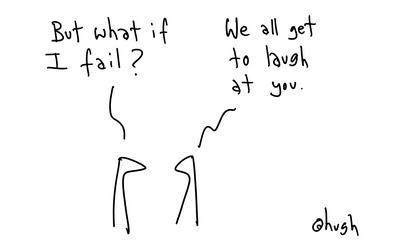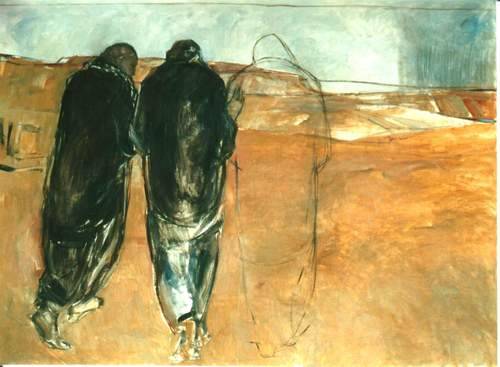“Success is not one of the names of God…”
This week I read a book by Seth Godin called “The Dip – A little book that teaches you when to quit (and when to stick).”
The title already reveals what the book is about: Godin enfolds his simple advice: pursue excellence or quit now.
In the beginning Godin postulates the hypothesis that everybody wants to be a superstar and the best in the world in some field of life. To archive this, he advises to either chase for the winners rostrum and invest all power or to quit a tactic and to search for a new field to demonstrate excellence.
What genre is the book?
An advice book on self- and time management or GTD? A book on project management and optimizing structures?
To me, this is the most important question concerning the book: Is a motivational book for people or a management advice for projects and structures?
There are a lot of things to learn in terms of management and leadership when accounting projects and large goals in structures. Godins advices about the right timing in quitting, prioritizing and investing power to archive excellence are useful and helpful.
But stepping back from the leadership, management and organizational perspective I am questioning Godin’s anthropology (and underlying theology that can be derived). Godin criticizes mediocrity. He states that everyone wants to be a superstar or the best in the world. Perhaps I am the only that disagrees, but that is not my goal in life.
Pursuing goals and projects I am investing power and strength, but not necessarily to become the best person in a field of life. The pressure towards excellence is overestimating a work righteousness perspective I can’t agree with. In my personal anthropology I am not pushing my achievements and successes to the most important goal in my life.
Here the problematic theological dimension comes out. Which theology and which ethic would support such a model of anthropology? Godins concept is useful for the transfer to optimize structures and project management but transferred to human level, they create a narcissistic dimension.
I can appreciate and value people who are mediocre and projects which are not THE BEST in the world. To me mediocre is not necessarily a bad thing.

Illustration out of “The dip” by Hugh Macleod
“Success is not one of the names of God…”
said Martin Buber, transferring his relational thoughts of “ich” and “du” to God and his people and connecting it with the ambivalence of the mighty and the weak God.
How could we correlate Godin’s concept with the theologia crucis? Or, to put it in Godin’s way: Is God failing on the cross (quitting too early) or persevering (mastering the dip?)
Godin’s explanations on “the dip” were fruitful to me. They reminded me of desert experiences in the bible. Godins questions like “Is the pain of the dip worth the benefit of the light at the end of the tunnel?” (page 55) reminded me of the complaining Israelites in the desert (Exodus 18-18) – in their personal dip-experience.
In this task of making the right choices and perseverance another strengthening factor is missing in the dip: God, who experiences the dip before and endures all dips at our side. With the assurance of God, accompanying us through all dips and deserts one can bravely follow Godin’s hint:
“If it scares you, it might be a good thing to try.” (Page 76)

(Illustration by Janet Brooks-Gerloff: Emmaus)
Brief:
- As an advice and motivational book on leadership and project management inspiring.
- Anthropology questionable or even rejectable due to an ethic of work righteousness and efficiency-darwinism.
- Model is too self-centered and narcissistic. Not relational by combining own efforts and successes with other people like team members or God.
Leave a Reply
You must be logged in to post a comment.